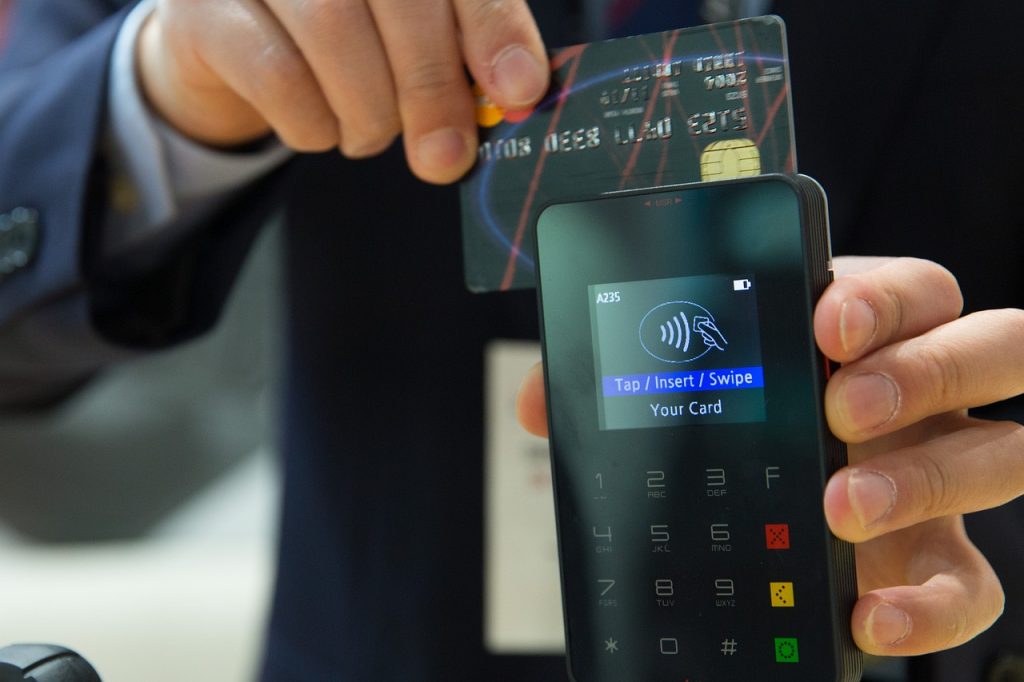In the domain of financial crimes, credit card fraud is a prevalent issue, with penalties that are designed to be both punitive and preventative. When such fraudulent activity is uncovered, the legal consequences can be quite steep, including hefty fines and jail time. These penalties vary based on the scale of the fraud and the jurisdictions involved, with potential ramifications extending into the personal and professional lives of the convicted. It is these consequences, and the mechanisms by which they are determined, that we aim to dissect and understand.
Understanding Credit Card Fraud
Delving into the domain of credit card fraud, it is crucial to peel back the layers and comprehend its intricacies. This crime, which is rapidly growing due to advances in technology, is a violation of credit card security and often involves identity theft.
Credit card fraud occurs when an individual uses another person’s credit card or card information without their consent, to make unauthorized transactions or access funds. This fraudulent activity is often facilitated through various methods such as phishing, skimming, and hacking into secure networks. These techniques enable fraudsters to circumvent credit card security measures and gain unauthorized access to cardholders’ information.
The repercussions of credit card fraud are vast and damaging. For the victim, it can lead to substantial financial losses, lower credit scores, and significant stress. In addition, it can deeply impact their sense of security, leading to a loss of trust in financial institutions and online purchases.
On the other hand, perpetrators of credit card fraud face severe penalties, including heavy fines, restitution, and potentially lengthy periods of incarceration. These stringent measures aim to deter potential fraudsters and reflect the seriousness with which this crime is regarded.
Legal Definition of Fraud
To thoroughly comprehend the penalties associated with credit card fraud, it is essential to establish a clear understanding of the legal definition of fraud. This involves dissecting what constitutes fraudulent activities, exploring the varying types of fraud, and examining the legal repercussions that follow fraudulent actions. The forthcoming discussion will provide a detailed analysis of these aspects, serving to illuminate the intricate legal framework surrounding the issue of credit card fraud.
Understanding Fraudulent Activities
Credit card fraud, a pervasive issue in the financial world, refers to any deceptive practices involving unauthorized use of another person’s credit card information. The scope of fraudulent activities extends to a wide range of undertakings, with identity theft and online scams being particularly significant breaches.
Identity theft is a prime component of credit card fraud, wherein fraudsters illegally acquire and use another individual’s personal data, most importantly, their credit card information. The stolen information is then unscrupulously used for purchases or to obtain credit, causing financial and reputational damage to the victim.
Online scams, on the other hand, are digital platforms where fraudsters trick unsuspecting individuals into revealing their sensitive information. This is often achieved through phishing emails, fraudulent websites, or insecure online transactions, leading to unauthorized access to credit card details.
These illicit activities are not only detrimental to the individuals affected but also pose a significant threat to the stability of financial institutions and the integrity of global economies. As a result, understanding these fraudulent activities is the first step in formulating effective strategies to combat credit card fraud.
Different Types of Fraud
Broadening the scope of our discussion, it is crucial to explore the different types of fraud, which are legally defined and recognized. Fraud comprises various illegal activities, often carried out in the digital sphere, where criminals manipulate victims’ personal and financial data for their personal gain.
The following list briefly outlines three notable types of fraud:
- Identity theft: This involves a criminal stealing an individual’s personal information, with the intent to impersonate them, usually for financial gain.
- Phishing attacks: These are deceptive emails or websites that trick users into revealing sensitive information, such as passwords or credit card numbers.
- Merchant fraud: This occurs when a merchant uses deceptive practices to defraud a consumer or financial institution.
Other types of fraud include card skimming, where thieves capture credit card information using a special device, online scams, account takeover, synthetic fraud, and application fraud. Account takeover and synthetic fraud are particularly complex; the former involves the unauthorized control of a person’s account while the latter entails the creation of a new synthetic identity using legitimate and fabricated information. Application fraud occurs when fraudulent information is used to apply for credit.
Consequences of Fraudulent Actions
Delving into the consequences of fraudulent actions, it is vital to understand that these illegal activities are met with stern repercussions. Fraud, by legal definition, is a deliberate deception made for personal gain or to damage another individual, often involving financial transactions such as credit card fraud.
The ethical implications associated with such fraudulent actions are profound. They breach the trust upon which healthy business and personal relationships are built, thereby damaging the fabric of society. Additionally, the financial harm inflicted on individuals and institutions alike can be substantial, often having long-term impacts.
The importance of victim support in these situations cannot be overstated. Victims of fraud often experience emotional trauma and financial hardship, requiring substantial resources to recover. Support can come in various forms, including financial compensation, psychological counseling, and legal assistance.
The punitive measures for credit card fraud include incarceration and heavy fines. These penalties serve a dual purpose: they act as a deterrent to potential perpetrators and offer a form of retribution for the victims. Nevertheless, the best approach remains proactive prevention and vigilant detection to minimize the occurrences of such damaging fraudulent actions.

Types of Credit Card Fraud
In the domain of financial misdeeds, various forms of credit card fraud persist as prominent threats to consumer security. These illicit activities exploit the vulnerabilities of electronic transactions and personal information, leading to significant financial losses and potential legal repercussions for the perpetrators.
- Credit Card Skimming: This method involves the illegal capture of credit card information during legitimate transactions. Fraudsters often use small devices known as skimmers to swipe and store the victim’s credit card data.
- Identity Theft: This form of fraud is perhaps the most infamous, involving unauthorized access and misuse of another individual’s personal and credit card information. The thief might apply for new cards in the victim’s name or make unauthorized purchases on existing accounts.
- Online Fraud: With the rise of eCommerce, online credit card fraud has become increasingly prevalent. This might involve hacking into online accounts, phishing scams, or fraudulent websites designed to capture a user’s credit card information.
The Legal Process for Fraud
Maneuvering through the labyrinth of legal proceedings that follow credit card fraud can be complex and intimidating. The process generally begins with investigation procedures where law enforcement agencies explore the case, meticulously collecting evidence to build a compelling case against the accused.
Once the case reaches the courtroom proceedings stage, the suspect is formally charged and asked to enter a plea. The legal defenses available are typically based on the circumstances surrounding the case. For instance, if an accused can prove they were unaware of the fraudulent activities, they might have a solid defense.
The sentencing guidelines for fraud cases depend on the severity of the crime and the defendant’s prior record. Plea bargaining is often an option, where the accused may plead guilty to lesser charges in exchange for a reduced sentence.
Moving forward, restitution requirements impose a legal obligation on the offender to compensate the victim for their loss. Ensuring the enforcement of victim rights is a vital aspect of the legal process. These rights include the right to be informed, the right to restitution, and the right to a speedy trial. The entire process is an extensive demonstration of the seriousness with which credit card fraud is treated legally.
Potential Fines for Fraud
Among the consequences faced by those found guilty of credit card fraud, financial penalties represent a significant deterrent. The severity of these fines is typically proportional to the amount of money involved in the fraudulent activity, reflecting the principles laid out in various penalty guidelines.
Several factors influence the determination of the final fine. The first and foremost consideration is the actual or intended loss, which directly impacts the magnitude of the fine. Secondly, the court evaluates the offender’s ability to pay in order to avoid imposing an undue burden. Finally, factors such as prior convictions, the sophistication of the fraud scheme, and the impact on the victims also play a significant role.
- The actual or intended loss: The greater the loss, the higher the potential fine.
- The offender’s ability to pay: This guarantees that the penalty is punitive but not crippling.
- Other factors: These include prior convictions, the sophistication of the fraud scheme, and the impact on the victims.
Fraud detection mechanisms play an essential role in identifying fraudulent activities at early stages, which can potentially mitigate the severity of the penalties. The financial repercussions of credit card fraud, therefore, serve as a potent reminder of the serious consequences of such actions.
Incarceration: A Serious Consequence
Undeniably, incarceration serves as one of the most severe penalties for credit card fraud, acting as a stark deterrent for potential offenders. The threat of imprisonment serves to dissuade individuals from engaging in fraudulent activities, thereby playing a significant role in the sphere of fraud deterrents. The length of the prison sentence often varies, contingent upon factors such as the amount defrauded, the number of victims, and whether the offender has any prior convictions.
Incarceration is not the only form of punishment imposed on fraudsters. It is often accompanied by hefty fines, restitution orders, and community service. Nevertheless, the fear of losing one’s freedom serves as a powerful deterrent. On the other hand, the legal system does offer incarceration alternatives that may be considered in certain cases. These alternatives, such as probation, house arrest, or electronic monitoring, can mitigate the harsh impact of imprisonment, without compromising on the punitive aspect of the sentence.
With credit card fraud being a serious crime with grave consequences, it is imperative that potential offenders understand the severity of the penalties involved. Incarceration, a significant consequence, emphasizes the seriousness with which the justice system views such offenses.
Long-Term Impact of Conviction
The long-term consequences of a credit card fraud conviction extend beyond the immediate legal penalties and can adversely affect an individual’s personal and professional life. The damage to one’s reputation post-conviction can be considerable, with potential for social ostracization and loss of future employment opportunities. Additionally, significant financial ramifications may persist long after the fraud, including ongoing legal costs, restitution, and challenges in securing future credit or loans.
Reputation Damage Post-Conviction
A person’s reputation, once tarnished by a conviction for credit card fraud, can face severe and long-standing damage. This tarnish can extend far beyond the immediate aftermath of the conviction, affecting both personal and professional relationships. Public perception of the convicted individual can shift dramatically, creating a long shadow over their future endeavors, and making reputation recovery a challenging, uphill battle.
Three key areas where reputation damage becomes pronounced include:
- Personal relationships: Trust, once broken, is difficult to rebuild. Friends, family, and acquaintances may distance themselves from the convicted individual due to the stigma associated with credit card fraud.
- Employment prospects: Many employers perform background checks, and a fraud conviction can greatly lessen the chances of securing a job, especially in finance-related industries.
- Business partnerships: The ability to forge new business relationships or maintain existing ones can be severely hampered, given that credibility and trustworthiness are paramount in such interactions.
Financial Consequences After Fraud
Beyond the significant damage to one’s reputation, a conviction for credit card fraud can also bring about severe financial consequences. This can manifest as a heavy financial liability, where the offender is legally required to repay the defrauded amount. This is often a significant sum, which can lead to long-term financial instability.
Further exacerbating the financial strain, courts may also impose restitution payments. These are over and above the defrauded amount, intended to compensate the victims for any losses incurred due to the fraud. Restitution payments can also include legal fees, which can run into thousands of dollars. It is important to note that these payments cannot be discharged through bankruptcy, and failure to pay can result in additional penalties.
Preventing Credit Card Fraud
Guarding against credit card fraud can often feel like a game of cat and mouse, with fraudsters constantly developing new tactics to breach security measures. However, it is possible to stay one step ahead with proactive steps and vigilant behavior.
Credit monitoring is an essential tool for preventing credit card fraud. This service provides real-time updates on your credit activities, alerting you to any suspicious transactions. Early detection of fraudulent activity can greatly limit the damage and reduce the potential of becoming a victim of identity theft.
Apart from credit monitoring, there are other effective strategies to prevent credit card fraud:
- Protect your personal information: Always keep your credit cards and financial documents secure. Regularly shred unnecessary financial documents and never share sensitive information unless absolutely necessary.
- Online safety measures: Use secure and encrypted websites for online transactions. Avoid using public Wi-Fi for financial transactions.
- Regular updates: Update your contact information with your bank regularly. This guarantees you receive timely notifications about any suspicious activities.
Preventing credit card fraud is a proactive process that requires constant vigilance. The outcome, however, is worth the effort as it can save you from substantial financial loss and the stress of dealing with identity theft.
Frequently Asked Questions
What Are Some Common Warning Signs of Credit Card Fraud?
Common warning signs of credit card fraud include unrecognised transactions, sudden credit score changes, and bills for unfamiliar accounts, all of which signify potential fraud detection and implications of identity theft.
How Does Credit Card Fraud Impact the Victims Credit Score?
Credit card fraud can severely impact a victim’s credit score. Unauthorised transactions and the resultant unpaid debts could lead to credit score reduction. This identity theft can impede future credit or loan approvals.
Are There Specific Laws Regarding Online Credit Card Fraud?
Yes, specific laws address online credit card fraud. These include the Fair Credit Billing Act and the Electronic Fund Transfer Act. Online fraud prevention and credit card security measures are also enforced to safeguard consumers.
Can Credit Card Fraud Conviction Affect Future Employment Opportunities?
A credit card fraud conviction can indeed affect future employment opportunities, primarily because it may surface during background checks, leading to significant employment challenges, especially in professions dealing with finance or sensitive information.
What Are the Procedures to Report a Credit Card Fraud?
The reporting process for credit card fraud involves contacting your card issuer immediately, filing a report with local law enforcement, and notifying credit bureaus. This aids fraud prevention and guarantees prompt action on your case.





